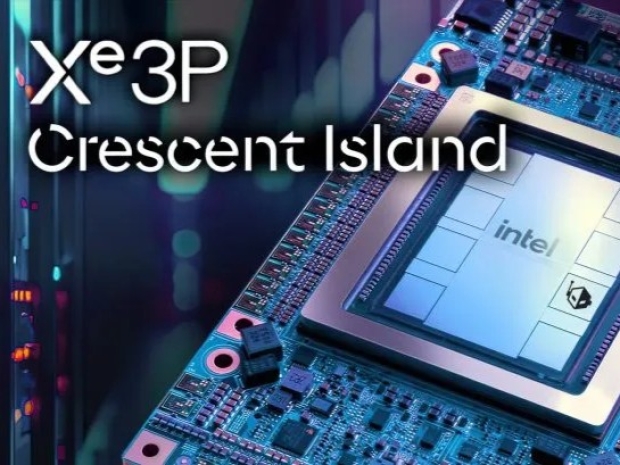The GPU, which was teased at the Intel Tech Tour 2025, runs on the new Xe3P graphics architecture. It is billed as an evolution of the already unproven Xe3 and is aimed at everything from client integrated graphics to AI inference gear for enterprise racks.
Crescent Island is designed to be power and cost-optimised for air-cooled servers. Chipzilla reckons it will shine in AI inference tasks by offering high efficiency and boatloads of memory, although it is skipping HBM entirely and going with 160GB of LPDDR5X. That is right, LPDDR. Not exactly bleeding-edge by HPC standards, but at least it might actually be affordable.
According to Intel, the new chip supports a wide range of data types and is apparently a good fit for "tokens-as-a-service" vendors, whatever that buzzword salad means in real terms.
While Nvidia and AMD are busy flaunting GPUs stuffed with HBM3E and making noise about HBM4, Intel is dodging memory shortages and price spikes by sticking to LPDDR5X. It is a pragmatic move, assuming it does not throttle performance too far below the competition.
Customer sampling is set for the second half of 2026, which means it will arrive just in time to miss whatever next-gen platform everyone else has already shipped.
Meanwhile, Intel’s open and unified software stack for heterogeneous AI systems is currently being tested on its Arc Pro B-Series. In theory, that means Crescent Island should be ready to hit the ground running with early software support, assuming the devs have not all rage-quit by then.
After years of bluster and missed deadlines in AI silicon, Crescent Island might be Chipzilla’s attempt to get serious. Whether anyone cares by 2026 is another matter.

